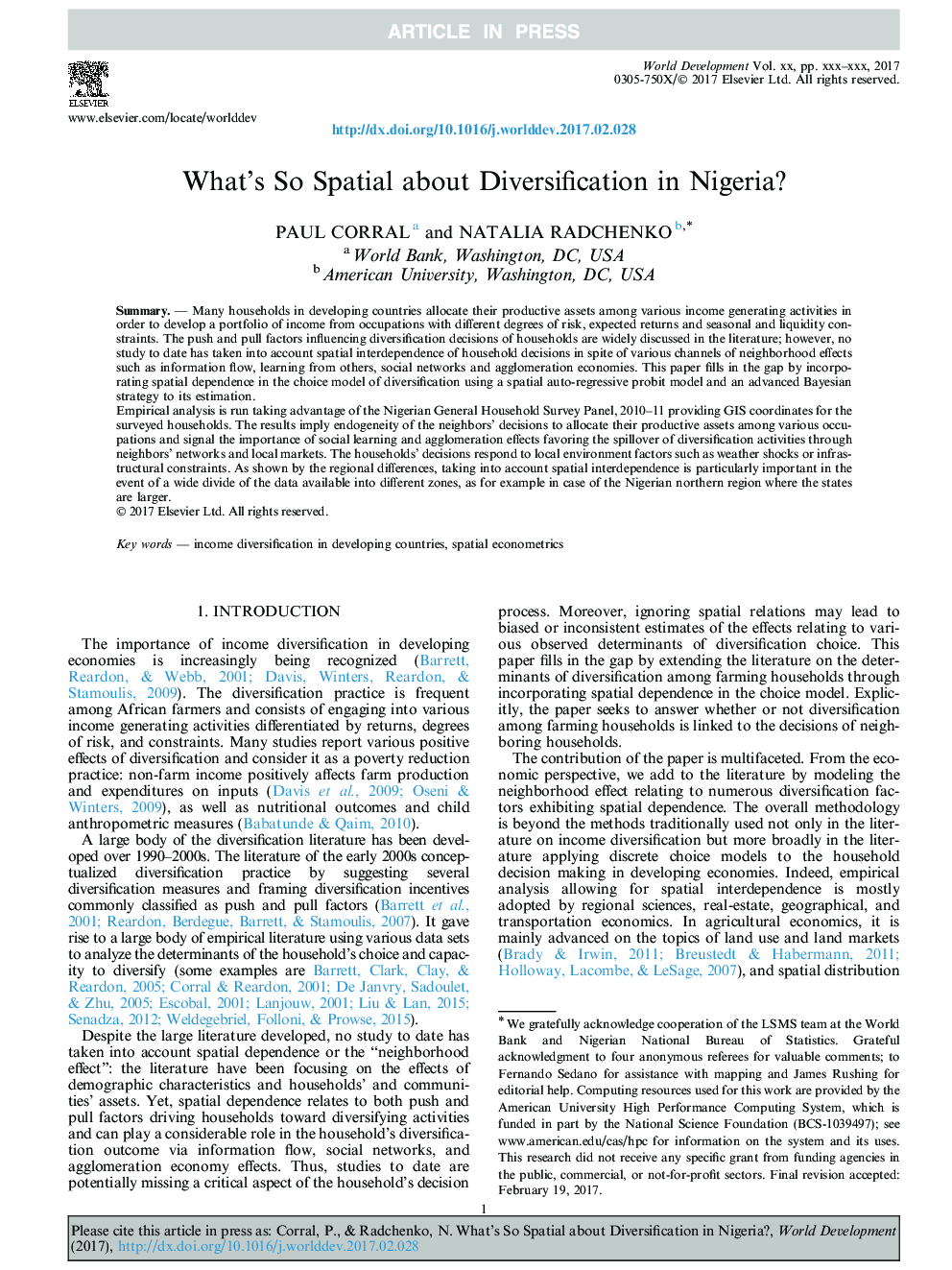| Article ID | Journal | Published Year | Pages | File Type |
|---|---|---|---|---|
| 5105278 | World Development | 2017 | 23 Pages |
Abstract
Empirical analysis is run taking advantage of the Nigerian General Household Survey Panel, 2010-11 providing GIS coordinates for the surveyed households. The results imply endogeneity of the neighbors' decisions to allocate their productive assets among various occupations and signal the importance of social learning and agglomeration effects favoring the spillover of diversification activities through neighbors' networks and local markets. The households' decisions respond to local environment factors such as weather shocks or infrastructural constraints. As shown by the regional differences, taking into account spatial interdependence is particularly important in the event of a wide divide of the data available into different zones, as for example in case of the Nigerian northern region where the states are larger.
Keywords
Related Topics
Social Sciences and Humanities
Economics, Econometrics and Finance
Economics and Econometrics
Authors
Paul Corral, Natalia Radchenko,
